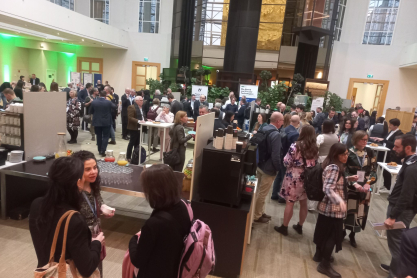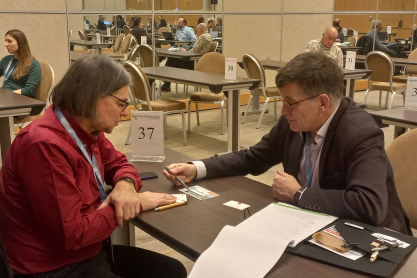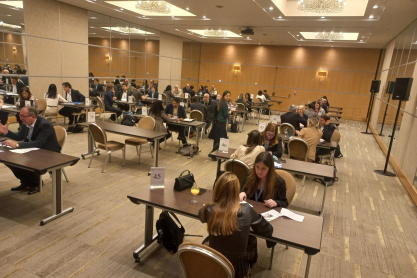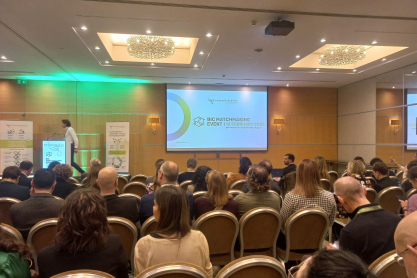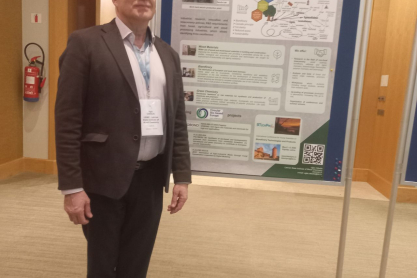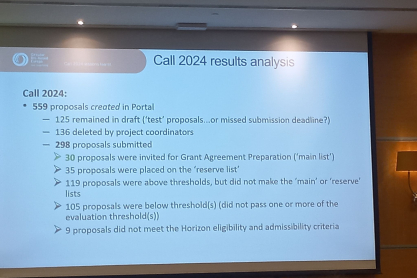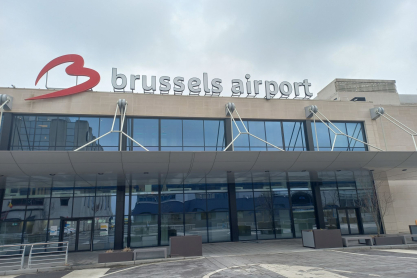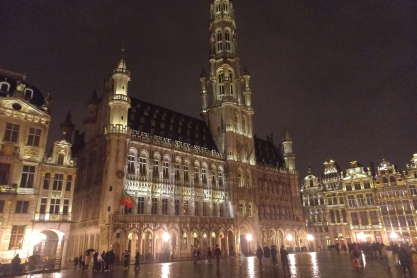BIC Info Day and Matchmaking Event in Brussels
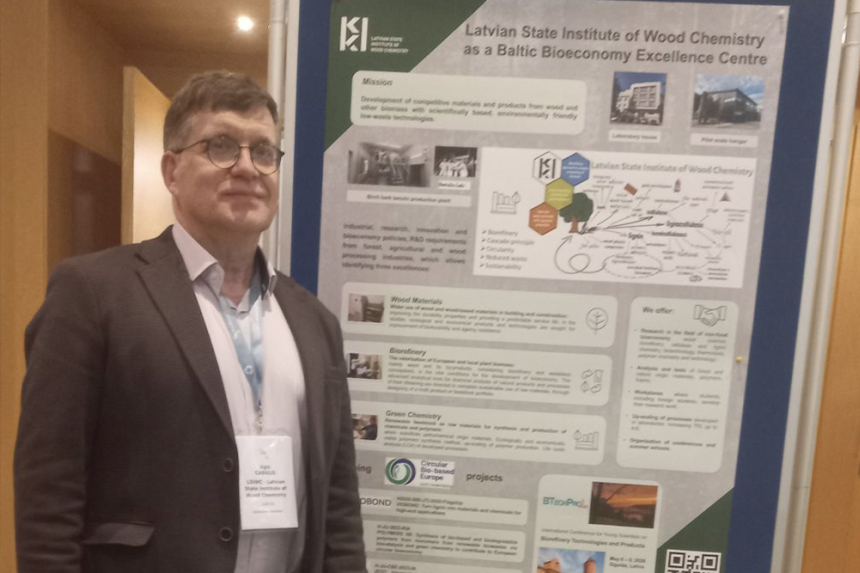
The Latvian State Institute of Wood Chemistry (LSIWC), as an associate member of the Bio-based Industries Consortium (BIC), participated in the BIC Info Day and Matchmaking Event (MME) in Brussels on February 12. Dr. sc. ing. Uģis Cābulis represented LSIWC at this event.
This annual event is an excellent opportunity to meet potential partners, form consortia, and strengthen collaboration in the bioeconomy sector. The organizers noted that this year’s event was the largest to date, with over 370 BIC members in attendance, representing companies of various sizes, universities, and research institutes.
Dr. Uģis Cābulis actively engaged in discussions and met with representatives of other organizations to foster new project development and share expertise on renewable resource utilization and biomass processing. To maximize the opportunities provided by the MME, he conducted 15 B2B meetings. (!)
“LSIWC has successfully participated in CBE JU project competitions, and we must continue working actively to achieve further success,” expressed Dr. Uģis Cābulis with satisfaction.
BIC is a European industry association that promotes the transition to a sustainable bio-based economy. It brings together companies from various sectors, ranging from resource cultivation to market players, to develop innovative value chains using renewable biological resources.
BIC is also a partner in the Bio-based Industries Joint Undertaking (BBI JU), a public-private partnership with the European Commission. The aim of this partnership is to develop innovative value chains by creating new biorefinery technologies, transforming renewable natural resources into sustainable bioproducts, materials, and fuels.
BIC’s mission is to promote innovation and collaboration across different industries to replace fossil-based raw materials with sustainable alternatives. It also supports the development of competitive bio-based products, contributing to the EU’s climate and sustainability goals.
BIC members and the European Commission jointly develop and approve the Strategic Innovation and Research Agenda (SIRA), which defines key technological and innovation challenges for building a sustainable and competitive industry in Europe.
In addition, BIC has established a bioeconomy platform where industry representatives can network based on common interests. This platform focuses on developing local value chains and accessing funding, helping regions and industries bridge the gap between investment opportunities and financial incentives.
Overall, BIC plays a significant role in Europe’s transition to a sustainable circular bioeconomy, driving innovation, collaboration, and the implementation of solutions across various industries.
